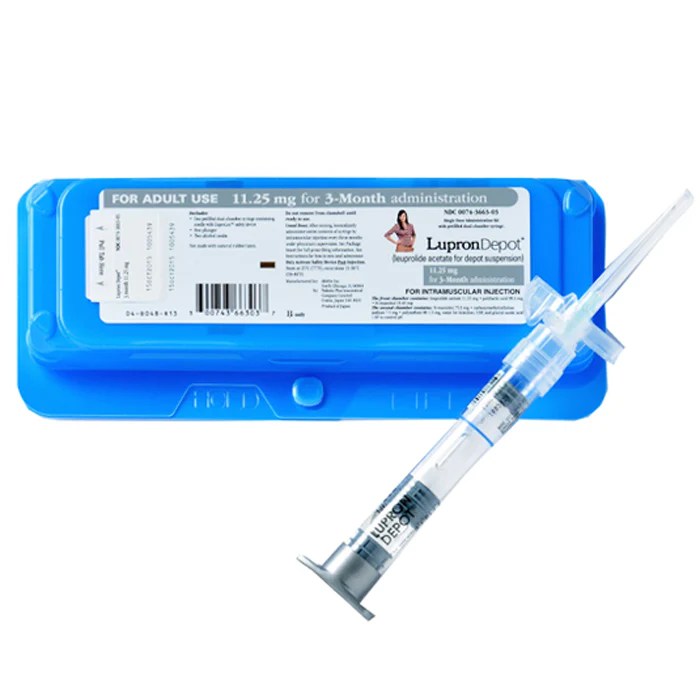Lupron injection, a powerful medication that alters hormone levels, is widely used to treat various medical conditions. This guide delves into the intricacies of Lupron, exploring its purpose, mechanisms, and potential implications. We will examine the specific conditions it addresses, its administration, and the potential side effects associated with its use.
From understanding the effects of Lupron on hormone levels to exploring its ethical considerations, this comprehensive overview aims to provide a clear and informative understanding of this complex medication.
Lupron Injection

Lupron, also known as leuprolide acetate, is a prescription medication available in various forms, including injections. These injections are used to treat a range of conditions, primarily those involving hormone imbalances, such as prostate cancer, endometriosis, and precocious puberty.
Lupron Injection: Mechanism of Action
Lupron is a synthetic hormone that mimics the natural hormone gonadotropin-releasing hormone (GnRH). GnRH is responsible for stimulating the release of other hormones, such as follicle-stimulating hormone (FSH) and luteinizing hormone (LH), from the pituitary gland. These hormones play a crucial role in the development and function of the reproductive system.
Lupron works by initially stimulating the release of FSH and LH, leading to a surge in hormone levels. However, prolonged exposure to Lupron desensitizes the pituitary gland, effectively blocking the release of these hormones. This suppression of FSH and LH levels disrupts the production of estrogen in women and testosterone in men.
Lupron’s mechanism of action is characterized by its initial stimulatory effect followed by a sustained suppression of gonadotropin release, ultimately leading to hormone reduction.
Lupron Injection: Formulations and Uses
Lupron is available in several formulations, each designed for specific applications:
- Lupron Depot: This formulation is administered as a monthly injection and is typically used for the treatment of prostate cancer, endometriosis, and uterine fibroids.
- Lupron Depot-Ped: This formulation is specifically designed for children and adolescents with precocious puberty. It is administered every three months.
- Lupron Depot-3 Month: This formulation is available in a 3-month injection and is commonly used for prostate cancer.
- Lupron Depot-4 Month: This formulation is available in a 4-month injection and is primarily used for prostate cancer.
- Lupron Depot-6 Month: This formulation is available in a 6-month injection and is typically used for prostate cancer.
- Lupron Flare: This formulation is designed for the treatment of endometriosis and is administered as a single injection.
Lupron Injection: Potential Side Effects
While Lupron is generally safe and effective, it can cause side effects, some of which may be serious. Common side effects include:
- Hot flashes
- Night sweats
- Mood swings
- Decreased libido
- Bone loss
More serious side effects, though less common, include:
- Heart attack
- Stroke
- Blood clots
- Depression
- Increased risk of osteoporosis
It is crucial to discuss potential side effects and risks with your healthcare provider before starting Lupron therapy.
Lupron injection presents a powerful tool in medical treatment, offering a range of benefits for specific conditions. However, it’s crucial to understand its potential side effects, risks, and ethical implications. By weighing these factors carefully and consulting with healthcare professionals, individuals can make informed decisions regarding Lupron treatment.
Lupron injections are often used to treat certain types of prostate cancer, but they can also be used to manage endometriosis. While Lupron works by suppressing hormone production, some individuals may experience side effects like hot flashes or mood swings. In these cases, a medication like inderal may be prescribed to help manage these symptoms. This medication, a beta-blocker, can help regulate heart rate and blood pressure, which can indirectly alleviate some of the side effects associated with Lupron treatment.